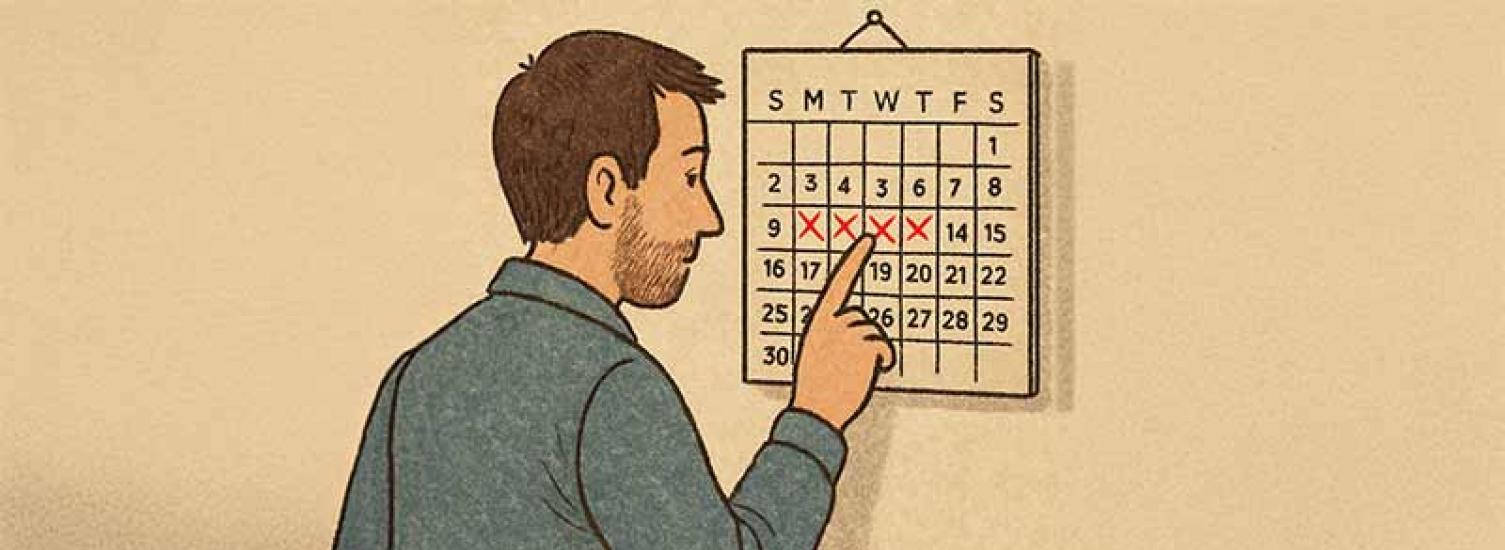
Starting testosterone replacement therapy (TRT) can be a transformative journey, but it's essential to know what to expect during the initial three months. This period is crucial for adjusting to testosterone replacement, understanding potential side effects, and optimizing your treatment for the best results. Each individual responds differently to TRT, making it vital to have a personalized approach to the therapy.
Here's a detailed roadmap for your first 90 days on TRT, designed to guide you through this pivotal phase. Understanding the changes that occur during this time can help manage expectations and improve your overall experience with TRT.
The first three months of TRT are all about getting your body adjusted to the new levels of testosterone. This period can be exciting but also a bit challenging as your body starts to respond to the therapy. The adjustments your body undergoes can manifest as both physical and emotional changes, requiring attention and patience.
What to Expect on TRT
During the initial phase, you may start noticing changes in energy levels, mood, and even physical appearance. However, it's important to manage expectations, as not all benefits appear immediately. Here's a timeline of what you might experience:
- Weeks 1-2: Some patients report a slight increase in energy or mood. However, these changes can be subtle and may not be immediately noticeable. It's essential to give your body time to adjust to the new hormone levels, as initial responses can vary widely between individuals.
- Weeks 3-4: You might start to feel more energetic, and some men notice improvements in mood or mental clarity. These changes can positively impact daily life, making activities feel less strenuous and more enjoyable.
- Weeks 5-6: Physical changes may begin to emerge, such as increased muscle mass or changes in fat distribution. This is often accompanied by a feeling of increased strength and endurance, encouraging more physical activity.
- Weeks 7-8: Libido may start to improve, and you might notice a boost in confidence and overall well-being. This can lead to improved relationships and a more positive outlook on life.
- Weeks 9-12: By this time, the effects of TRT should be more pronounced, with better energy levels, mood, and physical changes. It's important to remember that everyone's timeline is different, and some may see these changes sooner or later than others.
Common Side Effects of Testosterone Therapy

While TRT offers many benefits, it's also important to be aware of potential side effects, especially during the initial months. Understanding these side effects can help you manage them better and seek medical advice when necessary.
Initial Side Effects to Watch For
Common side effects include:
- Acne and Oily Skin: An increase in testosterone can lead to more oil production in the skin, potentially causing acne. Maintaining a good skincare routine can help manage these changes.
- Mood Swings: Adjusting to hormonal changes may lead to temporary mood fluctuations. Keeping track of your mood can help you and your healthcare provider assess the impact of TRT on your mental health.
- Fluid Retention: Some men may experience mild swelling or weight gain due to fluid retention. Monitoring your weight and discussing any significant changes with your doctor is important.
- Breast Tenderness: Changes in hormone levels can sometimes cause tenderness in the breast tissue. This can be concerning, so it's crucial to report any unusual symptoms to your healthcare provider promptly.
When to Consult Your Doctor
If you experience severe or persistent side effects, it's important to consult your healthcare provider. They can adjust your dosage or suggest additional treatments to alleviate symptoms. Regular communication with your doctor helps ensure that your TRT journey is safe and effective.
Optimizing Your TRT Journey
To make the most of your TRT journey, it's essential to focus on optimizing your treatment and lifestyle. A comprehensive approach that includes lifestyle changes can enhance the benefits of TRT and improve your overall well-being.
Key Monitoring Points
Regular check-ups with your doctor are vital during the first 90 days of TRT. They'll monitor your testosterone levels and assess how your body is responding to the therapy. Here are some key monitoring points:
- Blood Tests: Regular blood tests are crucial to ensure your testosterone levels are within the desired range and to check for any adverse effects. These tests also help in making necessary adjustments to your treatment plan.
- Symptom Tracking: Keep a journal of any changes you notice in your mood, energy levels, and physical health. This information can help your doctor make necessary adjustments to your treatment. Being proactive about tracking symptoms can lead to more timely interventions and better outcomes.
Lifestyle Adjustments
In addition to monitoring, consider making some lifestyle changes to enhance the effects of TRT:
- Exercise Regularly: Engaging in regular physical activity can boost your energy levels and enhance the physical benefits of TRT. Exercise also promotes cardiovascular health and aids in maintaining a healthy weight.
- Balanced Diet: Eating a healthy, balanced diet can support your overall health and improve your response to testosterone therapy. Include plenty of fruits, vegetables, lean proteins, and whole grains in your diet.
- Get Enough Sleep: Quality sleep is crucial for hormone regulation and overall well-being. Good sleep hygiene can improve your mood and cognitive function, making your TRT journey more effective.
Managing Expectations

While TRT can lead to significant improvements, it's important to manage expectations and understand that results can vary. Some changes might be immediate, while others take time to manifest. Having realistic expectations can prevent disappointment and encourage persistence in your treatment plan.
Patience and Consistency
Patience and consistency are key when it comes to TRT. Stick to your prescribed regimen, and maintain regular communication with your healthcare provider to address any concerns or adjustments needed. Consistency in your treatment and lifestyle changes can lead to more sustainable and long-term benefits.
Conclusion
The first 90 days of testosterone replacement therapy are critical for setting the stage for long-term success. By understanding what to expect, being aware of potential side effects, and optimizing your lifestyle, you can make the most of your TRT journey. Remember, this is a personalized journey, and what works for one person might not work for another.
Remember, each individual's experience with TRT is unique, so it's important to work closely with your healthcare provider to tailor the treatment to your specific needs. Regular follow-ups and open communication with your healthcare provider ensure that your TRT plan is effective and safe.
For more detailed information and personalized guidance, visit www.hrtdoctor.com. Stay informed and proactive to make the most of your TRT experience.
